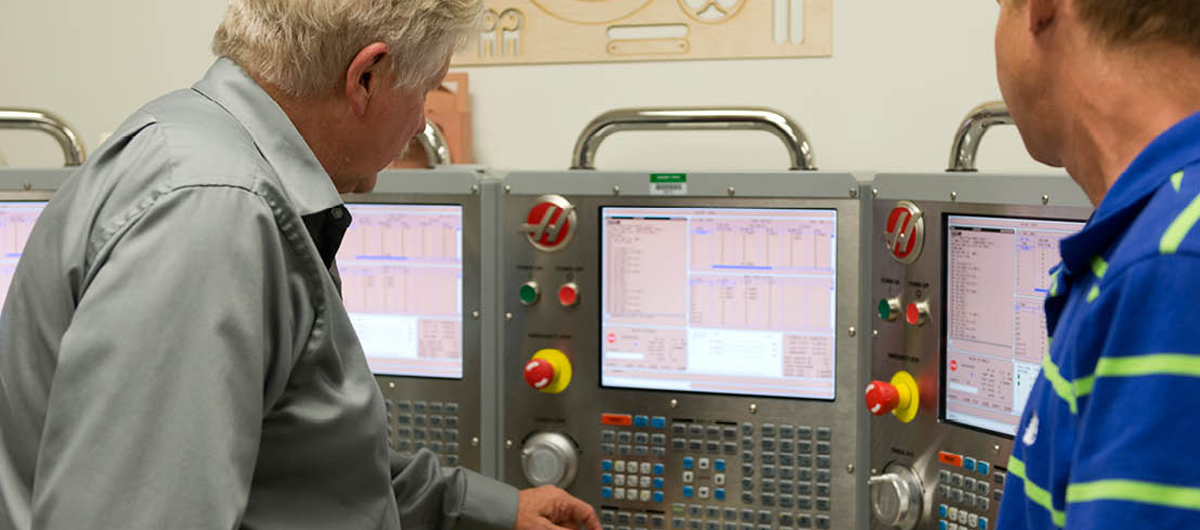Instrumentation & Controls Engineering Technology

About the Program
The mission of the Instrumentation & Controls Engineering Technology program is to provide high quality education and training.
AWARD TYPES: Certificate Level 2, Associate of Applied Science
AREA OF STUDY: Science, Technology, Engineering & Math
Degrees and Certificates
Learn more about the Degrees and Certificates offered by this program by visiting the HCC Catalog.
Program Information
General Requirements - Instrumentation & Controls Engineering Technology
The Instrumentation & Controls Engineering Technology program provides students with
a comprehensive understanding of how to provide design support, install, calibrate and
maintain industrial measurement and control systems. Through hands-on learning and
applied theory, students gain proficiency in sensors, transmitters, control valves,
programmable logic controllers (PLCs), distributed control systems (DCS) platforms, and
process automation networks. The curriculum integrates electronics, process control,
instrumentation safety, and system diagnostics to ensure graduates are prepared to
enhance operational reliability and efficiency in sectors such as oil and gas, chemical
processing, energy production and manufacturing.
Program Outcomes
Graduates of the program will be able to:
- Interpret and apply industry standards and safety practices to ensure compliance
and reliability in engineering and operational environments. - Read, interpret and sketch Process Function Diagrams (PFDs), Piping and
Instrumentation Diagrams (P&IDs) used in industrial automatic control using
applicable industry standards and symbols. - Configure a smart transmitter using a field communicator.
- Design, write a ladder logic code, and download/install it to a native
Programmable Logic Controller (PLC); troubleshoot and validate the original
designed functionality. - Troubleshoot and correct process upsets caused by faults injected/introduced to
plant process control equipment using simulation.
TSI testing required prior to first enrollment for all AAS degrees and Level II certificates.
INFORMATION (Session)
Global Energy COE programs Virtual Information Sessions for prospective students will
take place on Mondays from 2 p.m. to 3 p.m. During the information sessions, students will
be advised of the enrollment options in the Global Energy workforce programs. To register,
please call 713-718-5534 or email hcc.globalenergy@hccs.edu.
In the information session, students will be advised for enrollment in Global Energy COE
programs and provided information regarding degrees and certificates, career and salary
projections, industries hiring HCC students, financial assistance, scholarships, internships
as well as food or childcare needs.
Mission Statement
The mission of the Instrumentation & Controls Engineering Technology program is to
provide high-quality, application-oriented education that equips students with the knowledge and skills to design, operate, and maintain industrial measurement and control systems. The program’s commitment to intentionally utilize a heuristic (hands-on) process approach affords students to continuously improve with support through industry collaboration, faculty engagement, and assessment of student outcomes to ensure graduates are prepared for professional success, lifelong learning, and ethical practice in the global technology workforce.
Employment
- In the Houston–The Woodlands–Sugar Land, TX metropolitan area, there are approximately 2,500 Control and Valve Installers and Repairers, Except Mechanical Door employed (per BLS–OES data). Bureau of Labor Statistics
- The median (50th percentile) hourly wage in that metro area is about $23.34/hr.
which corresponds to an annual median wage of $57,320. Bureau of Labor
Statistics - In Texas (statewide), for the same occupation, there are about 8,330 employed,
with a statewide mean hourly wage of $26.73 (annual mean ~$55,590). Bureau of
Labor Statistics - In the Houston-Sugar Land-Baytown area specifically, the median annual salary
reported is $49,210 for this occupation (except mechanical door). USA Wage - In Houston’s measurement/control space, many positions advertise mid-level
Instrumentation & Controls Engineer compensation between $73,000 and
$125,000 per year. Glassdoor - For measurement-level roles (non-engineer), the advertised hourly rates (~$19.70 to
$30+) indicate that entry to intermediate measurement specialists can earn
competitive wages. ZipRecruiter+1 - The spread suggests that experience, certification, and responsibility (e.g. working
on custody transfer units, LACT systems, meter calibration, compliance) can push
compensation upward.
Technological & industry drivers
- The core function of LACT (Lease Automatic Custody Transfer) units and tank farm
measurement is critical to accurate volume accounting and regulatory compliance.
The industry continues to invest in optimizing measurement accuracy, reducing
losses, and modernizing older systems. Croft Productions Systems+1 - Because LACT / meter runs use well-established principles (flow, pressure,
calibration), the main differentiators are maintenance, diagnostics, instrumentation upgrades, and digital integration (automation, SCADA, flow computers). Croft Productions Systems+2Croft Productions Systems+2 - Firms will continue to require skilled personnel to calibrate, troubleshoot, and
maintain high-accuracy custody transfer instrumentation, especially as regulatory
scrutiny and economic pressures push for tighter measurement control.
Resources
Search for a Instrumentation & Controls Engineering Technology Professor or request more information
Get in touch
Instrumentation & Controls Engineering Technology
Hours of Operation: Mon.-Fri. 8am-5pm
